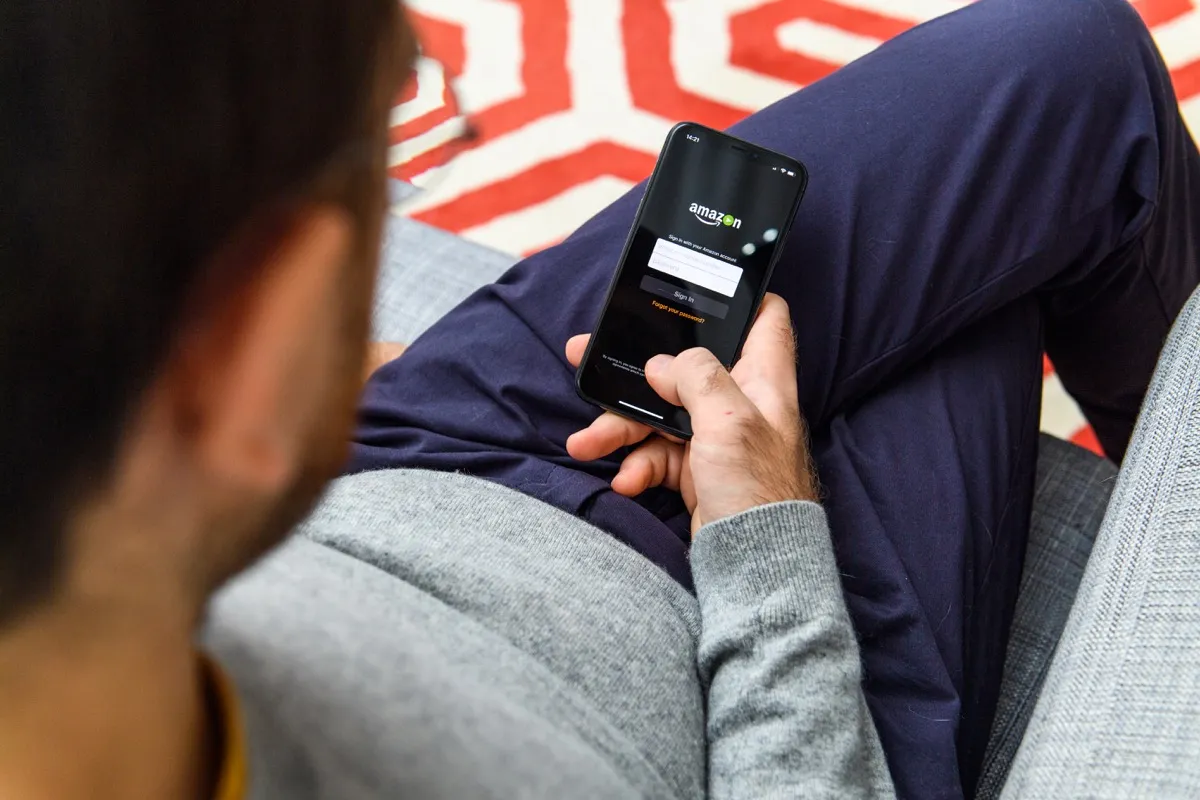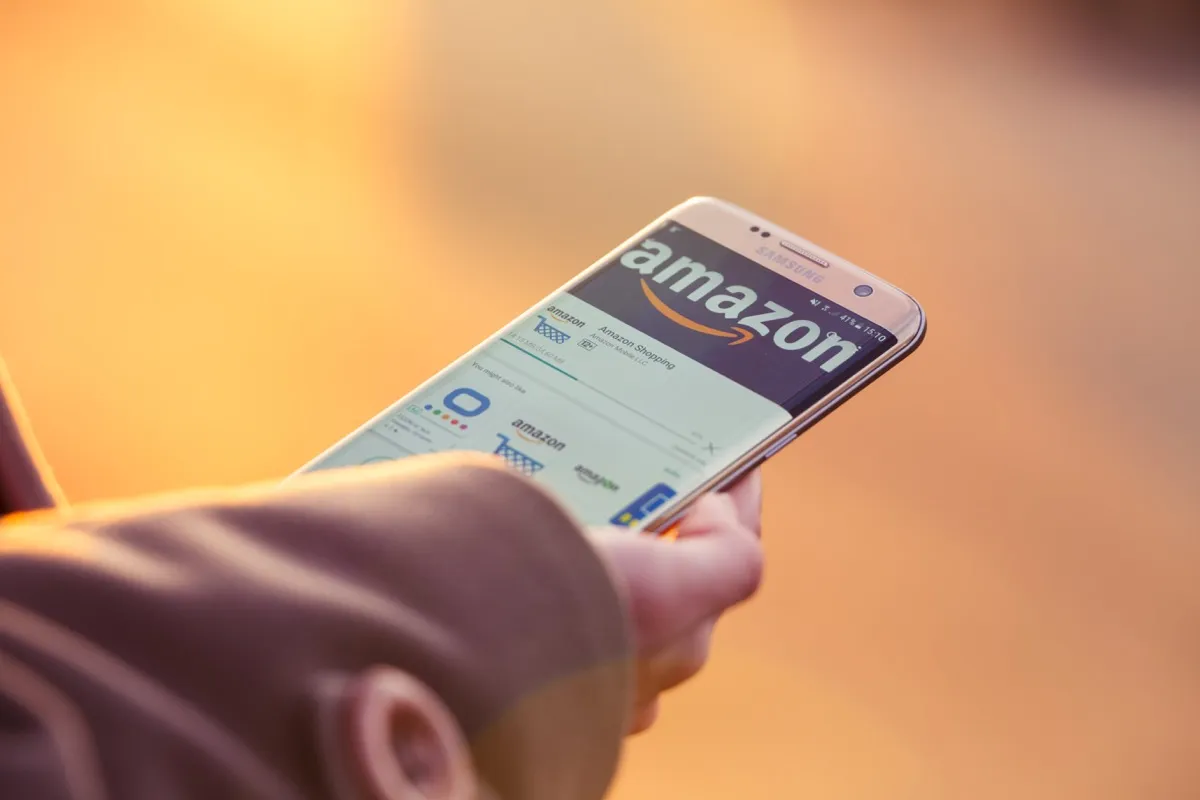If You Get This Message From Amazon, Don't Open It, Experts Warn
It may sound like good news, but it could open you up to some serious problems.

If you're like most people, you probably order quite a bit from Amazon—maybe even more than you'd like to admit. So, whether it's an email with your shipping information or a text confirming that your order has been delivered, you might even be getting more messages from Amazon than you do from your family or friends. But experts are now warning that opening one type of message from Amazon could be a scam that puts you at risk. Read on to find out which message you shouldn't open if you get it.
RELATED: If You See This Message on Your Roku, Report It Immediately, Experts Say.
If you get a message from Amazon about a raffle, don't open it.

It sounds exciting to receive a text message telling you that you won something, like AirPods, through an Amazon raffle—but unfortunately, those texts aren't actually from Amazon. According to the Better Business Bureau (BBB), scammers are using the company's logo and brand to trick customers into clicking on a link and sharing their Amazon account credentials as well as personal and financial information on a phishing website.
"Don't click," the BBB warns. "The text message is not from Amazon and it is the latest in a long list of impersonation scams that have been happening since the start of the pandemic, often using Amazon's brand."
If you do open a questionable message, make sure you examine the web address it takes you to.

If you do click a link in a text message or email, make sure you review the subsequent web address before you enter any personal information. "Legitimate Amazon websites have a dot before 'amazon.com,'" Amazon explains on its website. For example, Amazon Pay's website is simply pay.amazon.com.
According to Snopes, some users have been sent to a link with an IP address or one with a string of numbers before Amazon's name, which the company says it would never send. "If the link takes you to a site that is not a legitimate Amazon domain, then it is likely phishing," Amazon says.
RELATED: For more up-to-date information, sign up for our daily newsletter.
Hundreds of people have reported being scammed by Amazon impersonators.

According to the BBB, the organization received more than 770 reports of scams impersonating Amazon in 2020 alone. In fact, it was the second most impersonated brand or company, behind only the Social Security Administration. However, the BBB also says similar text scams have been linked to other popular brands like Netflix.
The BBB notes that, "as a general rule, companies cannot send you text messages unless you opt in to receive them." So if you have not given a company express permission to contact you through text, you should be even more cautious.
RELATED: If You're Sharing a Netflix Account, the Service Has a New Warning for You.
Amazon says you should report any questionable messages you receive from the company.

Amazon asks that you report any concerning messages claiming to be sent from the company directly to the Federal Trade Commission (FTC). "We take fraud, scam, phishing and spoofing attempts seriously. If you receive correspondence you think may not be from Amazon, please report it immediately," the company says.
And it appears they do take these claims seriously: Amazon just filed a federal lawsuit on May 11 against individuals who operated an illegal advertising scheme that sent fake text messages impersonating Amazon to various users' phones, Business Wire reports.
RELATED: If You Get an Email From the IRS With These 3 Words, Don't Click on It.





















